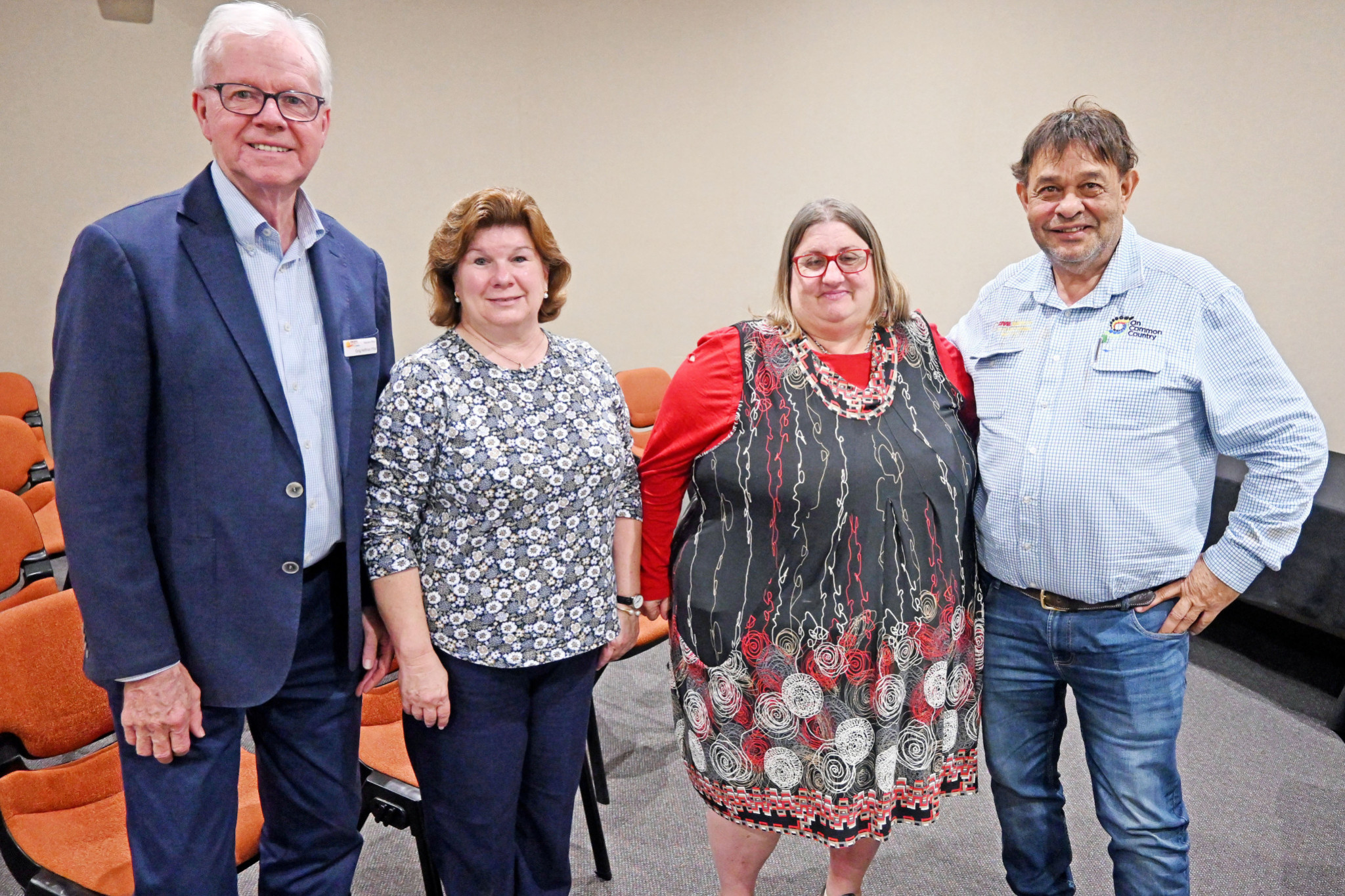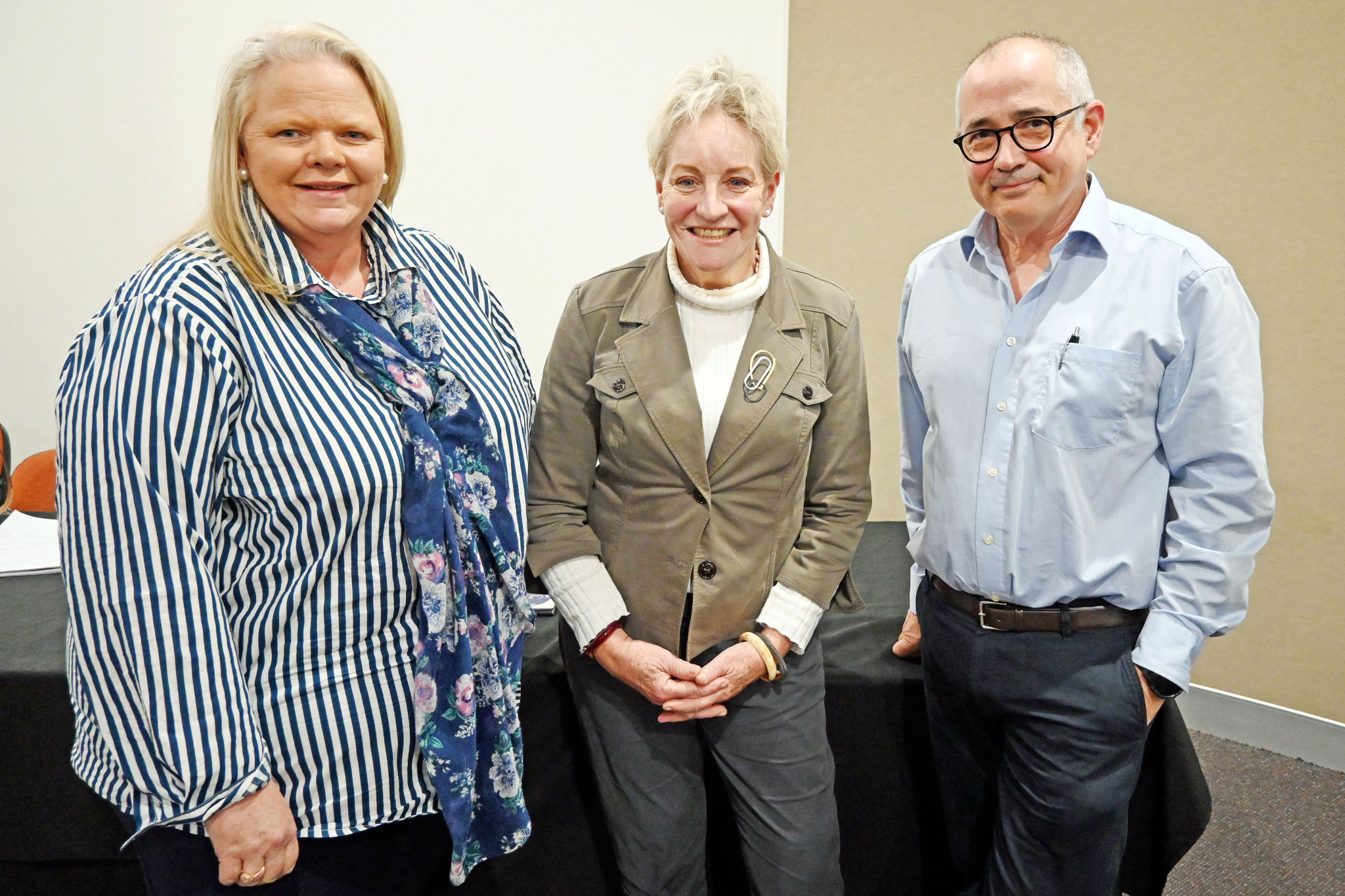General News
19 June, 2024
Must be better: North West calls for reliable telecommunications
The Regional Telecommunications Review committee was in the region on Monday to hear from locals.

Two cattle station owners drove hundreds of kilometres to be in Mount Isa on Monday to give their feedback on the unreliable state of telecommunications in the bush, calling for the federal government to engage with remote residents.
Wendy Hick, from Thorntonia Station, north-east of Camooweal, and Kylie Camp, from Floraville, south-east of Burketown, said that not enough was done to help those living in remote parts of Australia.
Both the Hicks and Camps rely on telecommunications to run their businesses, as well make emergency calls. Each cattle station has a mixture of landline, satellite and radio telecommunications, but they both say outages are frequent.
About 20 people attended the hearing in Mount Isa, while another was held on Mornington Island on Tuesday.
The Regional Telecommunications Review is held every three years and investigates the adequacy of regional Australia’s telecommunications.
It has a five-member committee, led by former West Australian MP Alannah MacTiernan, and will present its findings to the federal government by the end of the year.
In attendance at Mount Isa on Monday were Ms MacTiernan, Ian Kelly and Kristy Sparrow, while Fiona Nash and Jessa Rogers were absent.
Ms Hick, who is an advocate for remote telecommunications with a number of different organisations, including AgForce and National Farmers Federation, said station owners were usually proactive in trying to have the best available telecommunications, but said it was hard to have a reliable service.
“We want it to work and we need it to work,” she said.
“We have multiple systems on our property and we do it because that’s how you have to run a business and it’s also a safety measure for those living and working here.”
Ms Hick said the gradual decline of the copper landline network in Australia would be a blow to remote residents.
“With everything else you need power,” she said.
Floraville Station has copped a battering in recent times and Ms Camp, who runs the property with her husband and Burke Shire mayor Ernie, said it would be impossible to get workers if there was no telecommunications.
“If we didn’t have internet they would just go and find work somewhere else,” she said.
“In 2024 you can’t run a business without a good internet connection and we have to go through a lot of hoops and spend a lot of money to get that service.”
Floraville paid around $70,000 to Telstra for a small-cell satellite service on the property, even though it only has a limited range.
The Camps are now in the process of paying for an upgrade so it can provide a superior service.
COUNCIL SUBMISSION
GREG Hoffman, representing the Western Queensland Alliance of Councils (WQAC), said the current approach to rural telecommunications construction was out of step with investment trends, stifling our region’s economic potential and must be replaced with a strategy that supports local decision-making.
In its submission to the review, WQAC stated that despite funding from successive federal governments to improve telecommunications, our region remains underserved compared to the south-east corner of the state.
“This disparity will continue to stifle economic conditions, public safety and contribute to a widening digital divide that will harm national cohesion over time,” the submission states.
“Investment by the commercial telecommunications market will always favour population density unless Western Queensland has the opportunity to aggregate demand and become a bargaining power.”
The WQAC submission states there has been an inadequate, long-standing approach to rural telecommunications delivery that was uncoordinated, being compared to a “patchwork quilt,” and lacked a big picture view towards the needs of the entire region.
It stated that government approaches to regional support programs had not changed in recent years to meet the investment trends sweeping the telecommunications sector globally since the pandemic.
“Western Queensland will continue to see missed telecommunication opportunities because of the failure to empower local prioritisation and coordination to improve digital outcomes,” it said.
“The WQAC continues to offer to be a pilot model for a different approach to deliver an improved outcome.”
